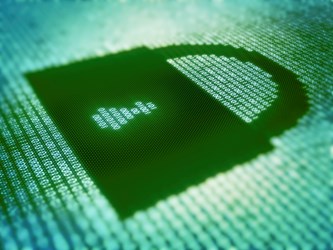Healthcare Providers Use Encryption To Protect ePHI, But What Is Encryption?

What is Encryption?
We hear a lot about encryption and how it is an important tool to keep our data safe. Healthcare providers are required by the Health Insurance Portability and Accountability Act (HIPAA) to use encryption as a way to protect their patients’ electronic protected health information (ePHI); but what exactly is encryption and how does it help prevent data breaches, fraud, and patient identity theft?
Encryption is based on the science of cryptology and has long been used by individual people, the military, and government bodies to communicate classified information. Cryptology focuses on cryptography, or the study of secret writing, and cryptanalysis, deciphering coded messages without the key.
Simply stated, encryption is a process used to scramble information. Only those who have the key to decrypt the information can read the correct message. For example, as a child in school you may have passed notes in class written in code so only your friends could read them. If a note was intercepted, they wouldn’t be able to read the message.
Get unlimited access to:
Enter your credentials below to log in. Not yet a member of Health IT Outcomes? Subscribe today.
